Many people learn languages for different reasons and thus their methods may vary. When I learn a language, my goal is to sound native-like (slang, expressions), speak with fluency(aka. no stuttering, I aim for a B2 level), and with natural pronuncation from one target dialect group(ex. I speak ‘Andean’ Spanish, and Brazilian Portuguese from Minas Gerais/Bahia). Ultimately, my goal is to be mistaken for a native speaker of a country. This rarely comes to fruition, but the goal needs to be stated . As a result, my method reflects these goals. There is nothing wrong with having different language goals, however keep this in mind when reading my guide.
Resources
Bookmark and use the following websites/apps. If any of these don’t support your target language (i.g. Wordreference doesn’t translate English > Indonesian, or Netflix doesn’t have Swahili movies) another website can used, the websites below are simply reliable and effective websites that I personally use, however, it’s the purpose that needs to be filled in order to effectively learn a language.
| Website/App | Purpose |
|---|---|
| context.reverso.net/translation/ (Very important) | Translation & Context for Vocabulary |
| wordreference.com | Online Dictionary |
| cooljugator.com | Verb Conjugation |
| translate.google.com | General Translation |
| conversationexchange.com | Language Partners |
| meetup.com | Local language exchange events |
| Whatsapp (varies by target language) | Communication with people around the world |
| YouTube | Watch videos in the target language |
| Netflix^ | Watch movies and tv shows in the target language with Subtitles |
| Any Music Streaming Service | Listen to music in your target language |
| Any Podcast App | Listening to Podcasts in target language |
| apps.ankiweb.net | Active Recall Testing and Spaced Repetition (aka Efficient memorization) |
| ankiweb.net/shared/decks/ | Decks for Anki. Just search for your target language and import the deck file |
| Any Website that Explains CEFR levels (Wikipedia is fine) | CEFR is an internationally recognized guideline for learners of foreign languages. Important to know for evaluating yourself but also to explain to others how well you speak. |
| Any website that explains basic linguistics (e.g. Adverbs, Phonemes, Clauses) (Wikipedia is fine) | Understand how languages are structured, useful for teaching and learning |
| lingq.com/en/ | Read stories in your target language |
| Any VPN(I use PureVPN personally) | You’ll need it to access websites that have free tv shows or movies that might be geolocked, for example puhutv.com in Turkey |
| (Turkish Specific) tureng.com/en/turkish-english | Translation & Context for Vocabulary |
| (Russian specific) en.openrussian.org | Translation & Context for Vocabulary |
| (Mandarin Specific) Pleco(iOS only, can be sideloaded on M1 Macs) | Translation & Context for Vocabulary |
| (Ukrainian Specific) en.glosbe.com/uk/en | Translation & Context for Vocabulary |
| (Portuguese Specific) conjugacao.com.br | Conjugate Portuguese Verbs |
| (Arabic Specific) industryarabic.com/arabic-dialects/ | Understanding Diglossia in Arabic |
| (Arabic Specific) arabic.desert-sky.net/faq.html | Understanding Arabic in General |
^Note: there is a chrome extension called ‘Netflix Multi. Subtitles’ that will allow two sets of subtitles in different languages simultaneously
Some key things to understand before startings
This video is very important to understand so that you don’t learn a watered down version of a language.
This video will give you some general tips on learning language
This video will help you understand how to aquire vocabulary
Why is it possible for people to understand a language but not speak it?
“Listening/hearing is a passive skill, but speaking is an active skill. A passive skill is something you are able to do without any real effort. This can include reading and learning, or listening to a language. All you do is collect the information. An active skill is something you physically have to do, which requires a bit more effort. Instead of reading a book, you have to write a book, or write a speech about what you read. Talking is an active skill. It requires thought to mouth co-ordination. Some foreign languages require sounds not pronounced in your mother language. You know what the sound sounds like, but it could be too difficult to maneuver your mouth and tongue to pronounce it. When you listen, the correct syntax and form is given to you. When you talk, you have to think of the syntax and put it into practice. In other words, when you listen, the other person does the thinking for you, but when you talk, you have to do the thinking.I dare say that confidence also plays a role. Some people know a language, but are a bit too timid to speak it because they are afraid of sounding stupid. In that case, they avoid talking, or claim that they cannot. However, they do have a fair grasp of the language, so they understand it okay. If a person who thinks they can’t talk is forced to do so, then they usually adapt and end up talking without too much issue” - u/deep_sea2 from Reddit.
Learning efficiently
If you learn only 800 of the most frequently-used lemmas(word families) in English, you’ll be able to understand 75% of the language as it is spoken in normal life. This is more or less true for all languages. For this reason, try to learn these more frequently encountered words and avoid obscure words so you don’t waste time learning them. When I hear a word in a foreign language that I know I won’t ever use, like ‘zebra’ for example, I just ignore it. There are lists online that can help you, so everyone once in a while parse through the lists and see how many words you recognize, which will give you an idea on how you’re progressing. Once you understand all the 1000 or so most commonly used words in a given language, you should be around B2 (Refer to CEFR levels)
Before Beginning and Choosing your Language
Do extensive research about your target language before you begin so you can pick the right dialect/form and the associated slang and pronunciation. For some languages this can vary greatly, and some languages have multiple standard forms (e.g. English), many accents/dialects/pronunciations (e.g. Spanish, Arabic) and even different writing systems (e.g. Serbo-Croatian, Kurdish). Accents and generally mannerisms are very difficult to unlearn once learned so beginning with the correct one is a smart decision. Having said that, pick your language partners wisely and try to avoid those that speak with different accents. For example, if you want to learn Spanish and you have decided you want to learn the Andean dialect, you would be wise to speak with Colombians, Venezuelans and Peruvians, but avoid prolonged conversations with speaker from other parts of Latin America as that might affect your pronunciation and syntax. This is true the earlier you are in your progress. This isn’t a concern for languages that don’t have much variation (e.g. Metropolitan French, Turkish or Russian)
The Importance of Listening
Even if you don’t know a single word of your target language, immersion in the form of listening will still be of great benefit to you. The reason for this is that, when you first approach a new foreign language, your brain won’t yet be able to parse the sounds. The language will sound like one big blur of noise, instead of crisp consonants and vowels grouped into words. By simply listening to your target language, your brain will slowly get better at parsing the sounds. Eventually, you’ll start naturally picking out common words. This is the start of cultivating listening ability. On the other hand, no matter how many words you’ve memorized, without actually listening to the language for hundreds of hours, you will understand close to nothing. You might be surprised at how much you can learn from simply watching a foreign TV show with no subtitles. Your unconscious mind is a pattern recognition machine. Once you start exposing it to a foreign language, it will immediately get to work decoding the sound system, grammar, and lexicon of the language. You’ll slowly start understanding more and more, but won’t be able to explain why. This is the counter-intuitive mechanism of language acquisition. It might be something that’s hard to fully grasp until you’ve started experiencing it for yourself.
Meeting Language Partners Online and in Person
Speaking with native speakers is the single most effective way to learn a language. If nothing else, do this. Find a language partner within a week of starting or as soon as you can have a very basic conversation. Make a Conversation Exchange account, and use this website to either meet someone face to face or online. You may go through a few people before you find someone you click with. If you’re lucky enough to live close to native speakers, meeting up with them is the best option, but if not, speak with them through an instant messaging app and video chat. Meeting people on Conversation Exchange can lead to great friendships and can be a wonderful reason to visit the country where your target language is spoken, and will greatly improve your motivation to learn the language. Outline your language goals to your partner as soon as possible so they can adjust their speech to cater to you. For example, if you want to learn a language for business purposes, you may want to avoid colloquialisms and slang, while emphasizing correct pronunciation. However, if you want to learn a language for pleasure or travel, you may want to assure your language partner to speak as if they were speaking to a peer in their own language, so that you can sound more like a native speaker. At the beginning you can expect the spoken language ratio to be 95% Your language: 5% Target language (Assuming your native language is English and theirs is not, since most people have at least some knowledge of english. English will be your fallback language). Your goal is 50%: 50%, and even if your language partner tells you they don’t want to speak with you in English because they are shy or whatnot, insist on equal language time. The reason is that although it may be great that you get more practice, they will (often subconciosly) become resentful and feel that you are taking advantage of them and can stop responding. Another important thing to do when establish your language exchange partner relationship is discussing corrections. I find that people intuively do not correct you if you make a mistake in their language, when it is small enough that it doesn’t change the meaning of what you are saying/they can still understand you. For this reason, I always strongly insist that they correct me on every single mistake that I make. Yes it can be tedious and it is simply my personal suggestion, but it will lead to better progress down the road. On the same topic, I ask my language partners how they like to be corrected. I give them three options: The first, to only correct very severe mistakes or completely mispronounced words, the second is to correct severe and minor mistakes and mispronouncations, and the third is to not make any corrections at all. Most people opt for the second option.
Online
Be sure to utilize audio messages when speaking using an Instant Messaging app for a more natural conversation. you should speak with your partner daily on instant messaging apps and video chat them once a week for an hour. It might look something like this: You practice your language an hour a day via instant messaging10, and video chat once a week.
In Person
I cannot understate the importance of Language Exchange (e.g. Mundo Lingo, BlaBlaLanguageExchange or even cultural focused Facebook group) events. You should be able to find one in any medium to large sized city, and they can serve as a ‘testing ground’ for your language. Here’s an example. You feel like you’re getting better but you don’t have many opportunties to practice the language in the wild. You go to a language exchange event, and you meet a native speaker there. You introduce yourself and begin speaking your language. I must say, personally, there are few better feelings in the world than the look of shock on someone’s face, and the months of hard work paying off when you can actually speak their native tongue. A trick I like to use is to throw in a colloquailism, the more specific to the country/region they’re from, the better(ex. ‘Servus’ to an Austrian, or ‘e ai?’ to a Brazilian) For this reason, I highly suggest language exchange events. They will boost your language confidence through the roof, and give you an incredible motivation to keep pursuing your marathon dream of language fluency. Another minor reason to go is that if you do practise with the same native speaker consistently(I often do, I usually keep two partners per ‘active’ language, and one partner for languages that i’m not actively studying), you get accustomed to their mannerisms, accent and speech, which makes it easier to understand. The downside is that it will be more difficult to understand other speakers. By speaking to a total stranger, it gives you great exposure to other accents and varieties of speech.
Language Books
Start with a story/lesson book and a grammar book/text book9 (I recommend the “Assimil” or ‘Teach Yourself” series for the story/lesson book, and a ‘Routeledge’ as a grammar book) in your target language and go through a few lessons every day. Target goals on the cover such as “for beginners” and “A2/B1/B2 CEFR” are good to look for. As a general rule, you should not focus on grammar(explained in point 6), however some is necessary, best in small amounts. You will find that you naturally acquire grammar as you learn a language, which is the best way since you don’t think about it, you just begin to speak that way and notice it feels right. You should be done the textbook in 2-3 months after which you should read it one more time . Supplement the textbook with online lessons for grammar points that you find yourself weak in. Avoid advanced grammar textbooks until you feel you can already speak comfortably and are plateauing despite being a higher level.
Note: Language textbooks are notorious for having outdated expressions and slang, so be sure to run them by your language partner if you get a chance. Here is an example I found on Youtube: ‘I am a native Swede. If you study Swedish, one of the first things you will learn is probably the common greeting “god dag”, meaning good day. Thing is though, almost NOBODY says this, aside from newscasters - a simple “hej” is what people normally use to greet each other. Yet textbooks continue to teach this’
Input through Media
Find some music, movies, tv shows, YouTubers that you like and podcasts to listen to, it will help you get the rhythm of the language and your brain needs to familiarize itself with the morphemes and phonemes. You don’t need to understand anything at the beginning, just hearing the language is important. Don’t be afraid to sing along or repeat what you hear. Once you understand more, these resources will be a motivator to learn more about the cultural and countries associated with your target language, which will encourage you to study.
Notetaking
Purchase two notebooks, one large and one small11 12. Take the small notebook and write down everything(words, phrases, etc.) from every conversation, movie or article that you don’t know and any questions so you can ask a native speaker at a later time. Once you have the answer, from referencing a dictionary or asking a native speaker, you will transfer the words/phrases/answers to your large notebook to keep it neat. This will be your routine for notetaking: hasitly writing words you hear/see into the small notebook, then when you have time, transfer them with examples to the large one, into the appropriate section. Take the large notebook and divide it equally into 4 parts with the following sections: Vocabulary, Verbs, Phrases, and Grammar2 3 4 5. Subsections can include numbers, slang, etc. For example, if your notebook has 80 pages, allot 19 for each main section and the last 4 for slang. Writing things down is a great way to memorize things, so write everything you think is essential to the language in this large notebook. Avoid obscure or archaic words and phrases and this will slow your progress down and you will be unlikely to actually use them. Under the Vocabulary section in your notebook, be sure to add examples to each definition so that you can understand the context in which the words are used(e.g. ReversoContexto). For languages with logographic writing systems, buy a second large notebook with grid pattern pages, which you can use to practise writing the characters. When you don’t have an opportunity to write in your notebook(you’re out of your home), use a notes app7 8 to record words like a digital ‘small notebook’. You can also add labels for words I use a colour and symbol system for the small notebook for the inital vetting1, feel free to copy it.
- red exclamation mark: I don’t know the meaning, but I believe I can find it in a dictionary/reference
- blue question mark: I don’t know the meaning, and I don’t believe I can find it in a dictionary/reference. I need to ask a native speaker.
- blue words in parentheses: extra things to ask a native speaker(e.g correct pronunciation, or whether a word is acually used colloquially’
- orange asterisk: I’m not sure if spelled correctly (for languages with different scripts/alphabets)
- green checkmark: this word has been defined and recorded in the large notebook
- green notes: I wrote down a native speaker’s definition for a blue question mark words
- word striken through: entry completed: defined and recorded
Studying Regimen
The rule of thumb is as follows; Active Studying 20% - Passive Studying 80%. If you feel you’ve reached a plateau (lack of progress for a long duration of time), focus more on active studying; although not as fun, it might give you the knowledge necessary to push your understanding of the target language ahead. The chart below will help you understand how to differentiate between active and passive studying. Your brain loves looking for patterns, so you need to flood it with input, or, all of this music, conversations, lessons and repetition! That’s the key. In addition, there has been a study that has shown that after a period of intense study, taking time off from learning a language may actually benefit you.
| Active Studying | Passive Studying |
|---|---|
| Reading a book | Listening to Music, Podcasts |
| Going through your grammar book (i.e. stories and lessons) | Reddit, Twitter or Instagram pages in the target language |
| Online grammar exercises, drills, quizzes, and tests | Watching YouTube Videos, Tv Show, Movies |
| Anki | Speaking with your language partner |
| LingQ | Writing in your notebook |
Consistency
Study at least a little every day. Even having a conversation on WhatsApp counts (as passive learning)
Memorization
The Anki Flashcard Program6 is a very effective program for your computer and phone. Install it on your computer(my preferred method) and watch a YouTube video to understand how to use it. It can be challenging at first but it’s a very powerful tool to learn a language efficiently. Simply speaking, it is a great way to memorize. Other than this program, don’t use any other memorization techniques other than writing in your notebooks. This method is particularly effective for logographic languages. As an additional tip, add ‘add-ons’ to make the program more enjoyable.
How to sound like a Native Speaker
Training intonation patterns is one way. Pitch changes are a key part of human communication. In many languages, they can distinguish a question from a statement, a happy statement from an angry one, and the speech of a native from the speech of a foreigner. Intonation plays a wide variety of subtle-but-important roles in every language spoken on the planet today, so practising this is key to sounding good in your target language. You can do this by listening to native speakers speak and imitating then or listening to an audio and marking up and accompanying text with variations in tone (e.g. October 31 🔺// is a night for fun and fright 🔻. Children of all ages🔺// dress up in costumes. There are little girls 🔺// who dress up as fairies🔺//, princesses🔺//, ballerinas🔺 //and the li-🔻ke.) I must say I have never done this personally, but I know it to be an effective method. I can naturally pronounce languages decently, but if I ever felt that my pronouncation was lacking and plain exposure to the language wasn’t enough, I would use this technique.
Fun
Remember! Language learning should be a positive, pleasurable experience! If it isn’t, no method will work! That’s the key in all of this, it doesn’t really matter how you’re learning it, as long as you’re enjoying yourself. Language learning is a marathon, not a sprint. It’s something you need to do for the rest of your life, so you better hope it’s enjoyable before you commit to it.
More Information
The following is a list of reliable and vetted language learners who give solid advice. Watch their videos if you’re looking for more. Be warned, there are many polyglots who claim to speak many languages but in fact carefully direct conversations into the set phrases that they memorized, or just ignore questions asked of them and change the topic to something they are comfortable with. Don’t be discouraged by people who claim to have learned a language in a month of a week, it’s likely fraudulent.
| Polyglot | Link |
|---|---|
| Luca Lampariello | https://www.youtube.com/user/poliglotta80 |
| Cole Bowen(A longtime friend of mine) | https://www.youtube.com/channel/UC8N0xISNCK2ywG687198t5w |
| Steve Kaufmann | https://www.youtube.com/user/lingosteve |
| Lindie Botes | https://www.youtube.com/channel/UCjVwBKqRh8ckPWhfD5UDKcg |
Conclusion
Everyone is different, and this guide might or might not work for you, the important thing is not giving up. There is no right or wrong way to learn a language, only the passion of learning.
References
Ref. 1: Small Notebook entries
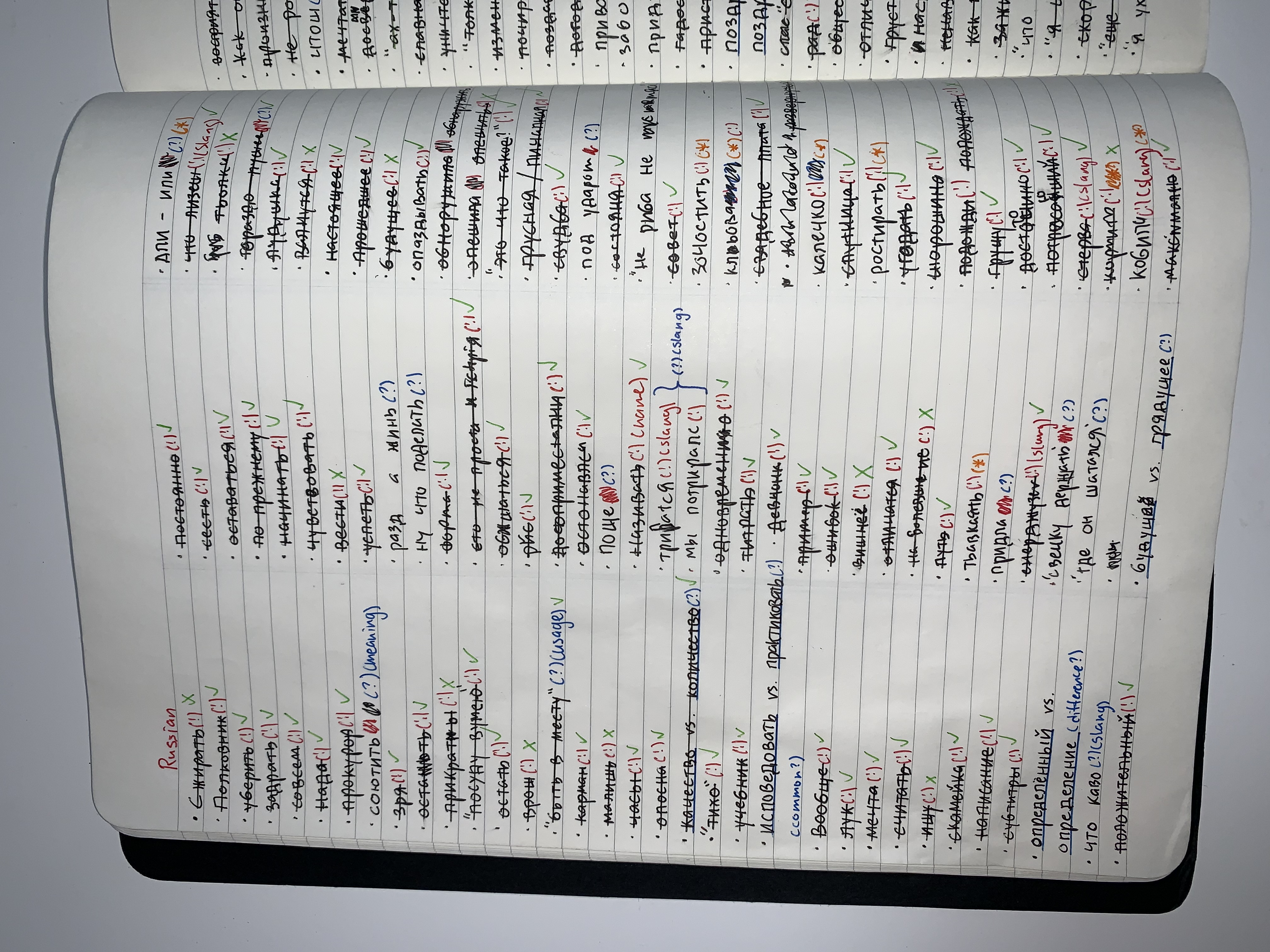
Ref. 2: Vocabulary section

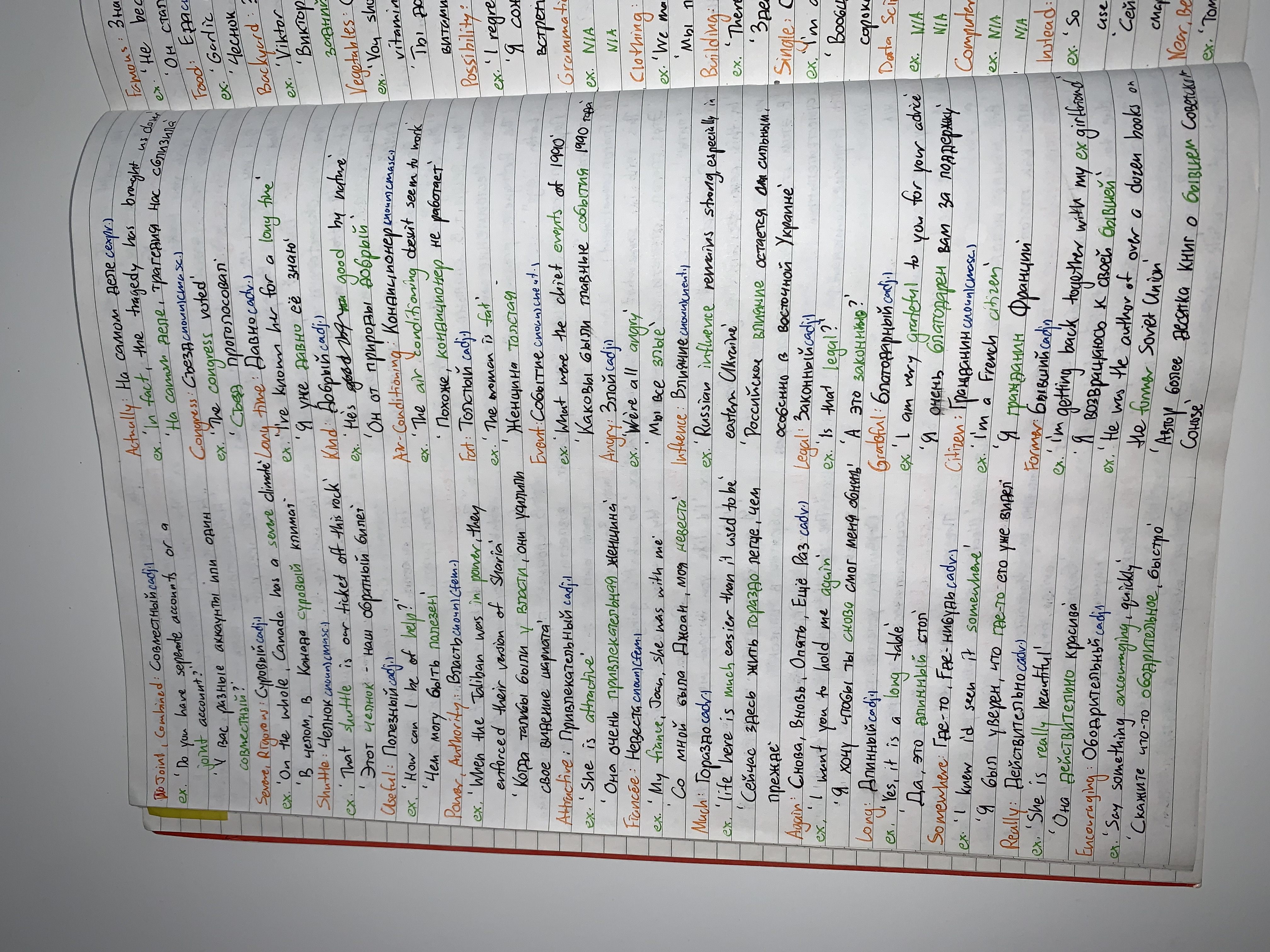

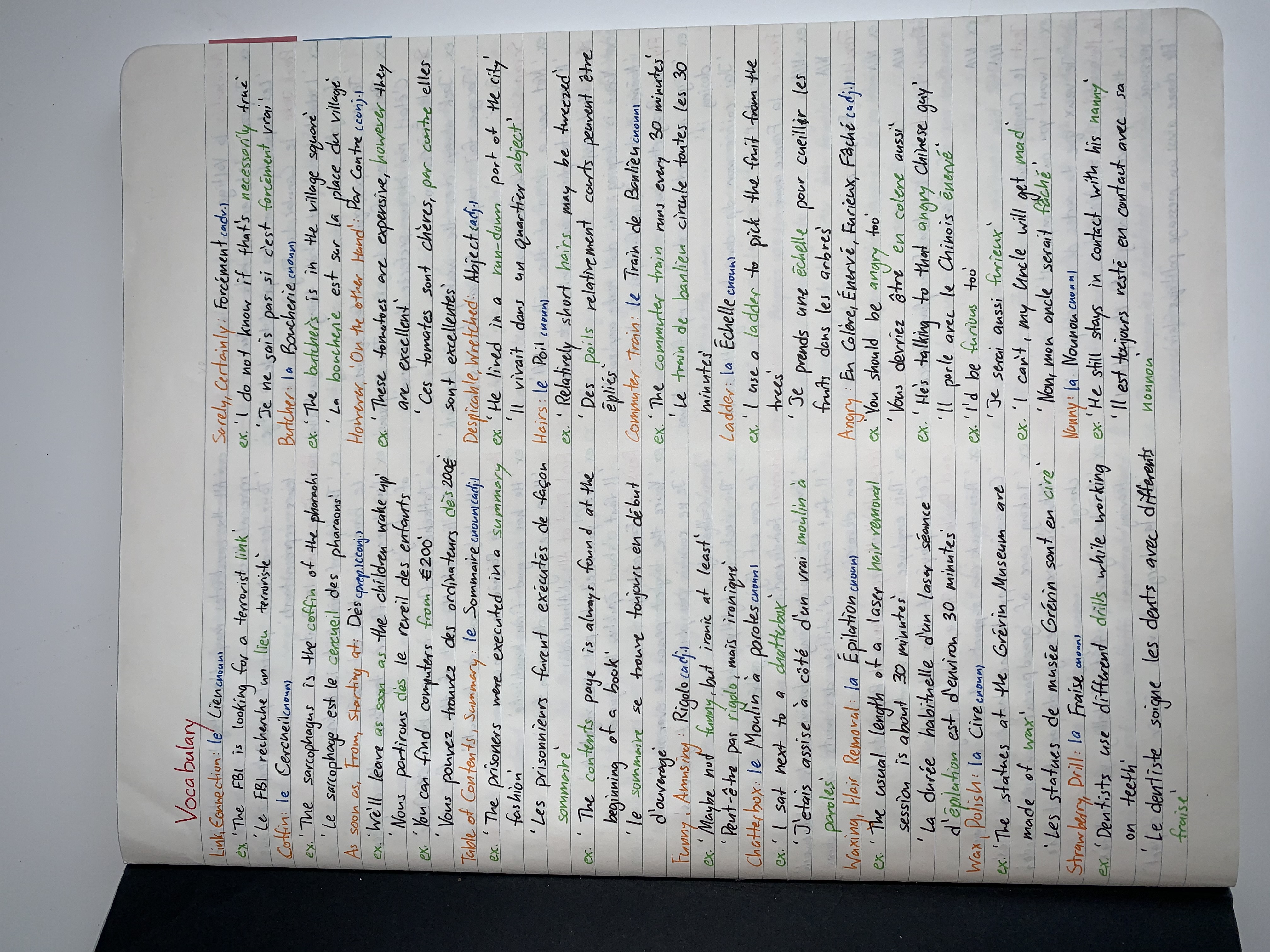
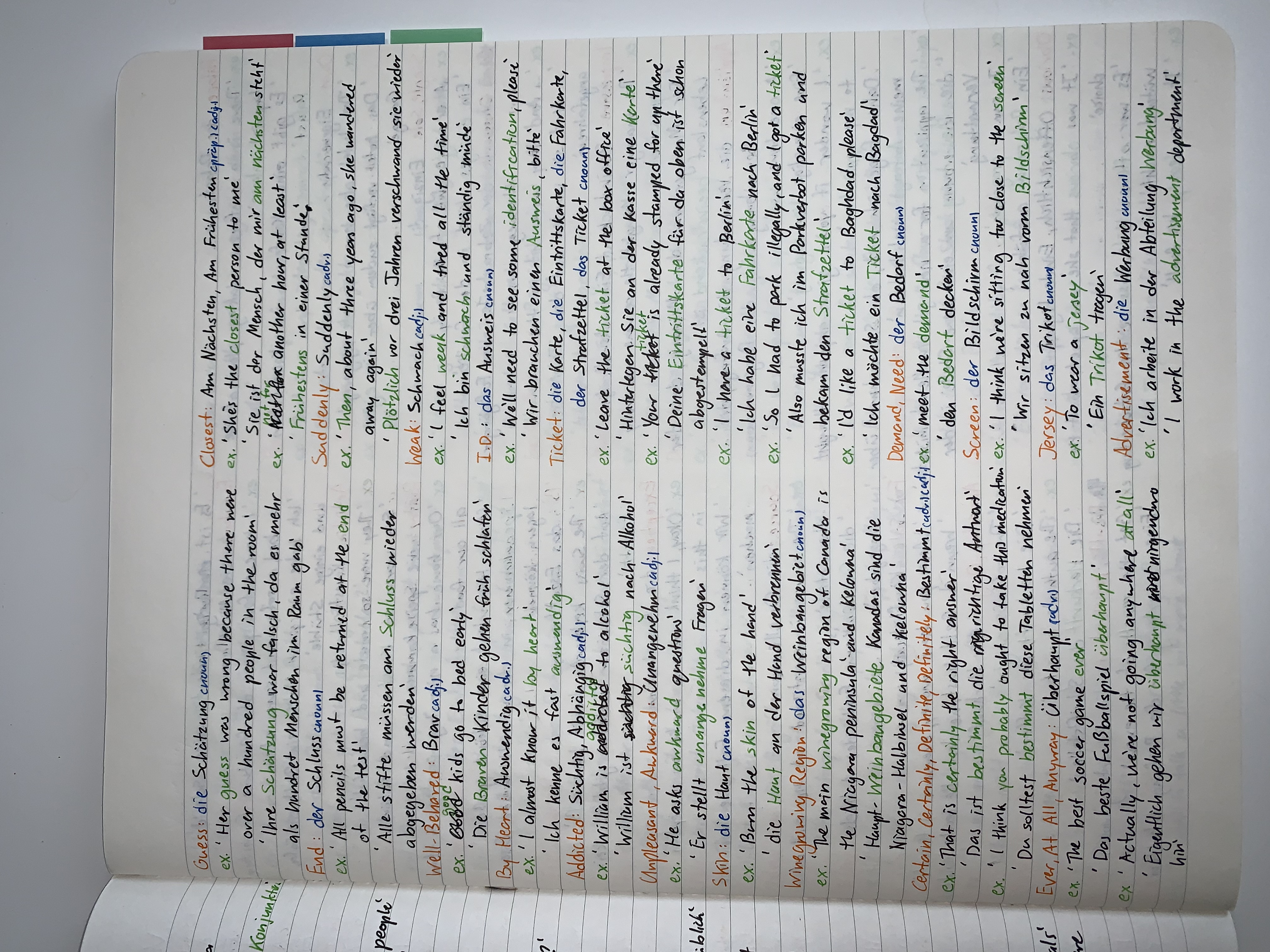
Ref. 3: Phrases and Expressions section
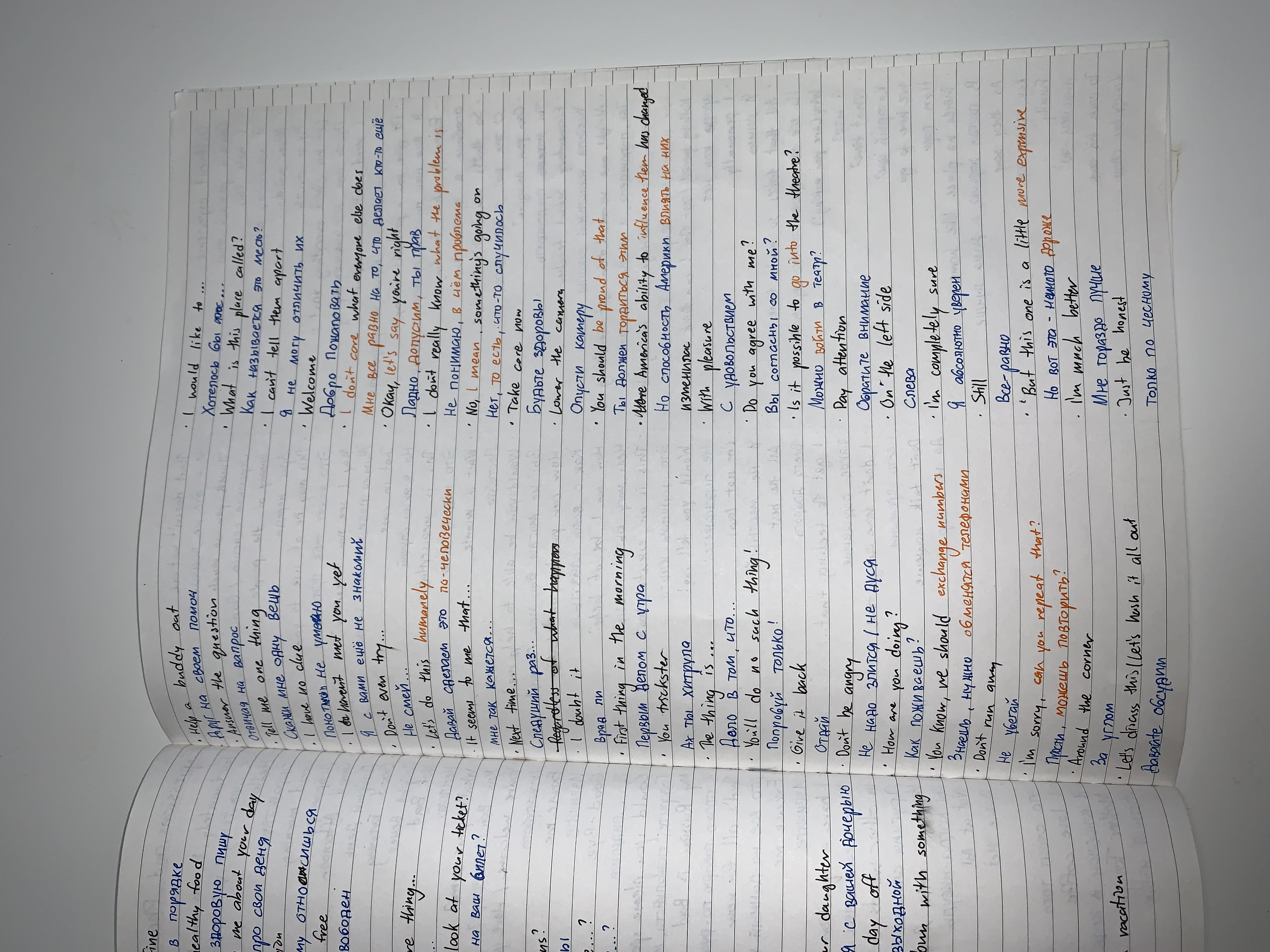
Ref. 4 Verbs section
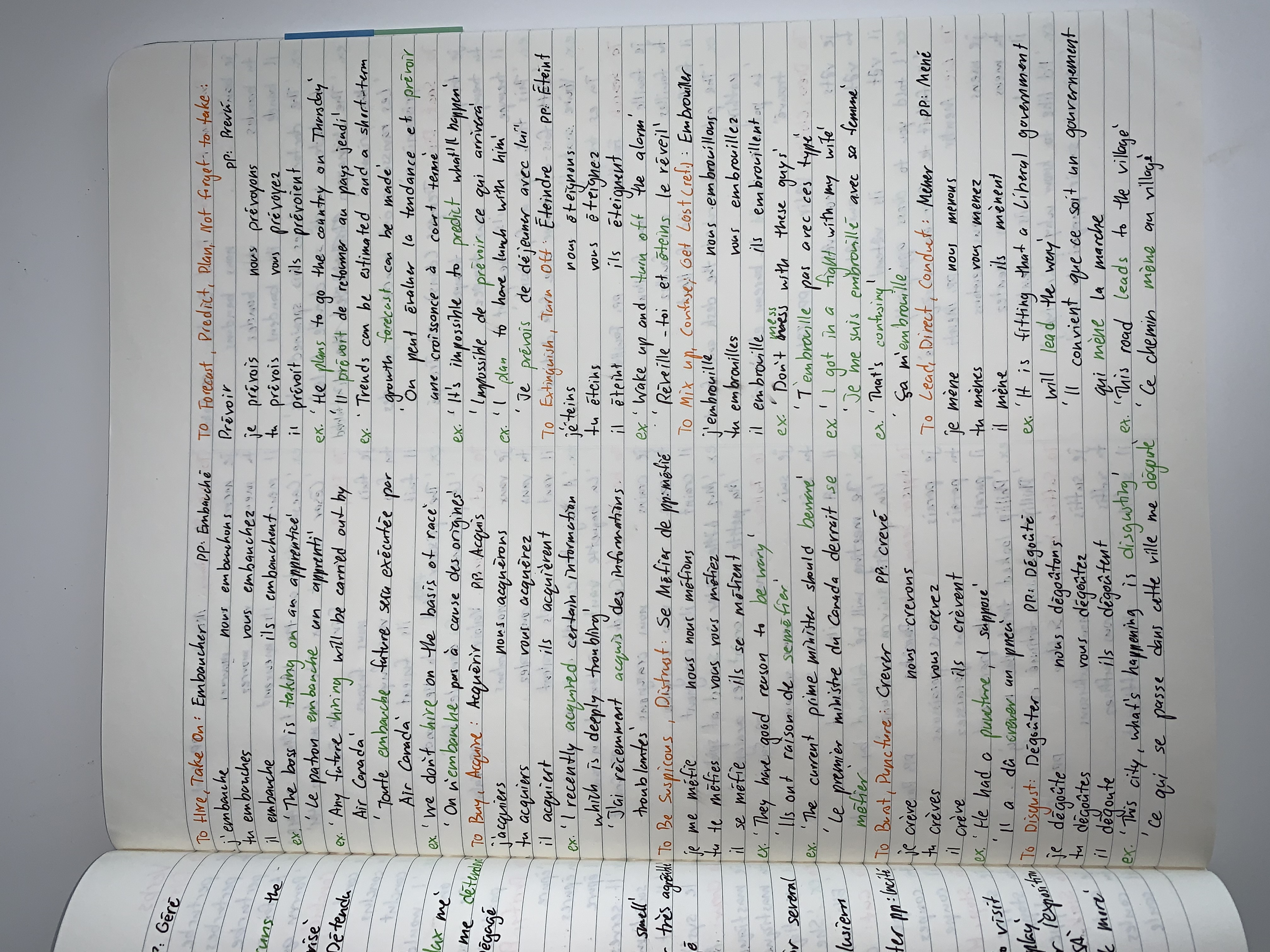
Ref. 5: Grammar section

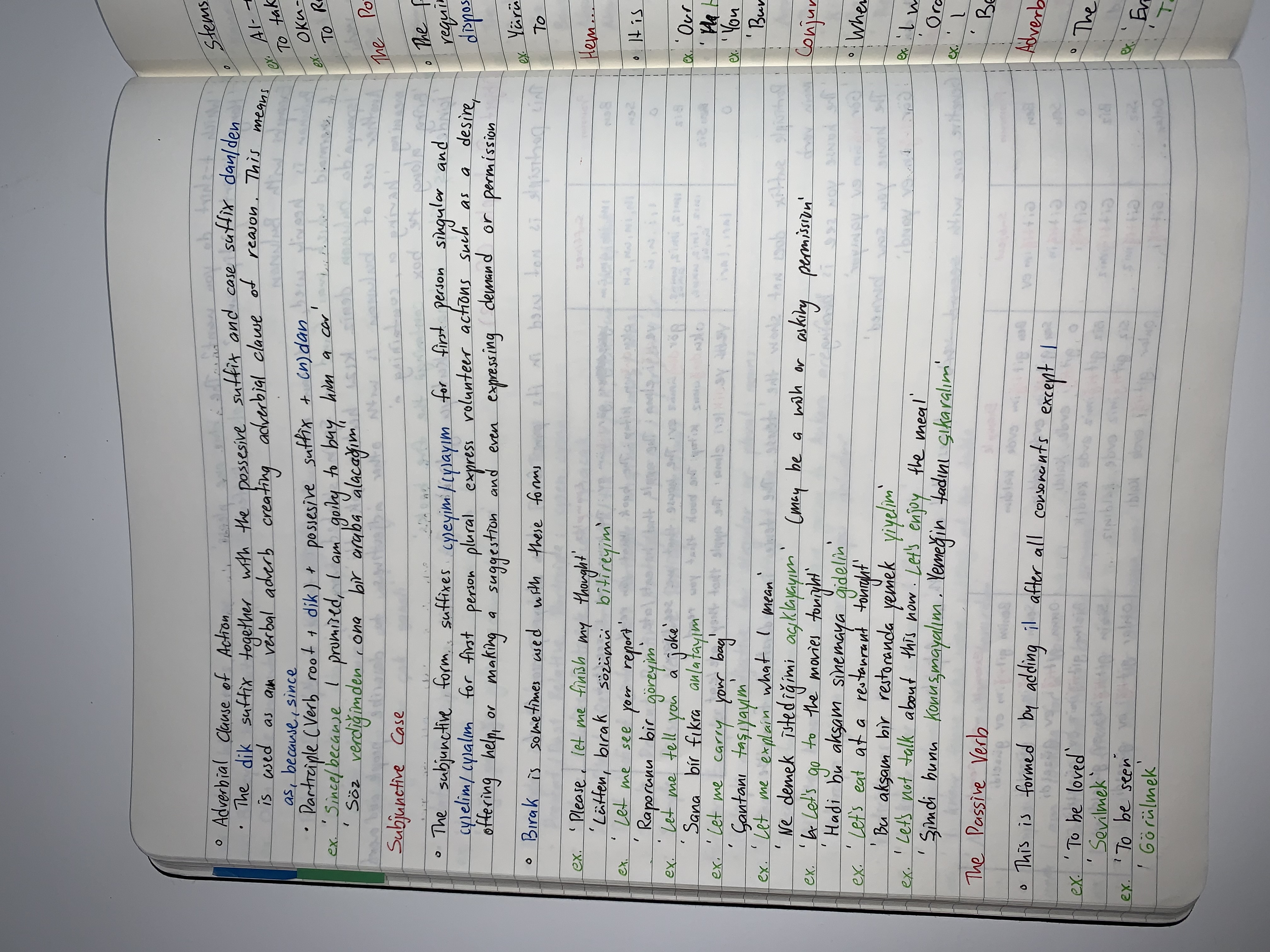
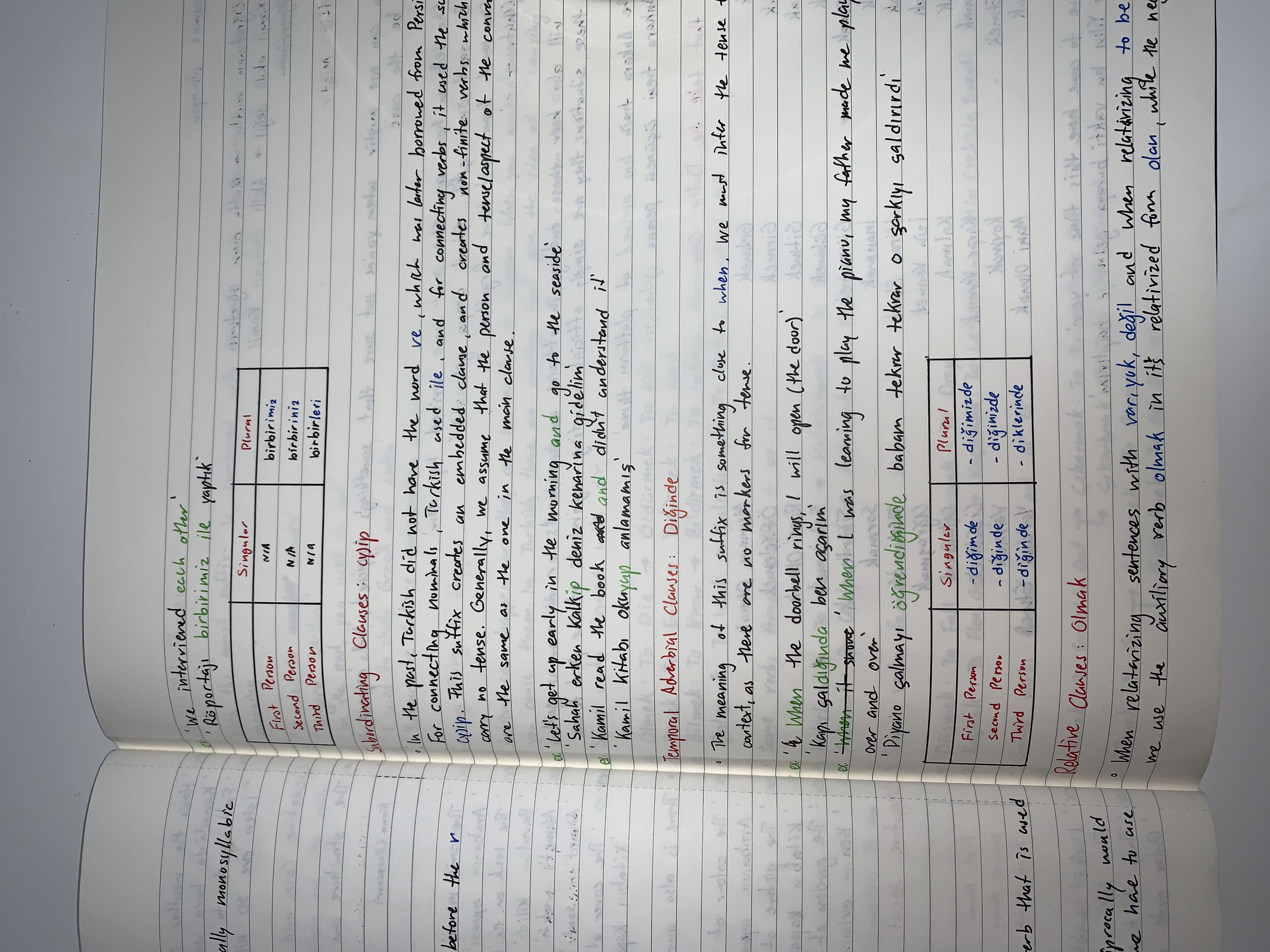
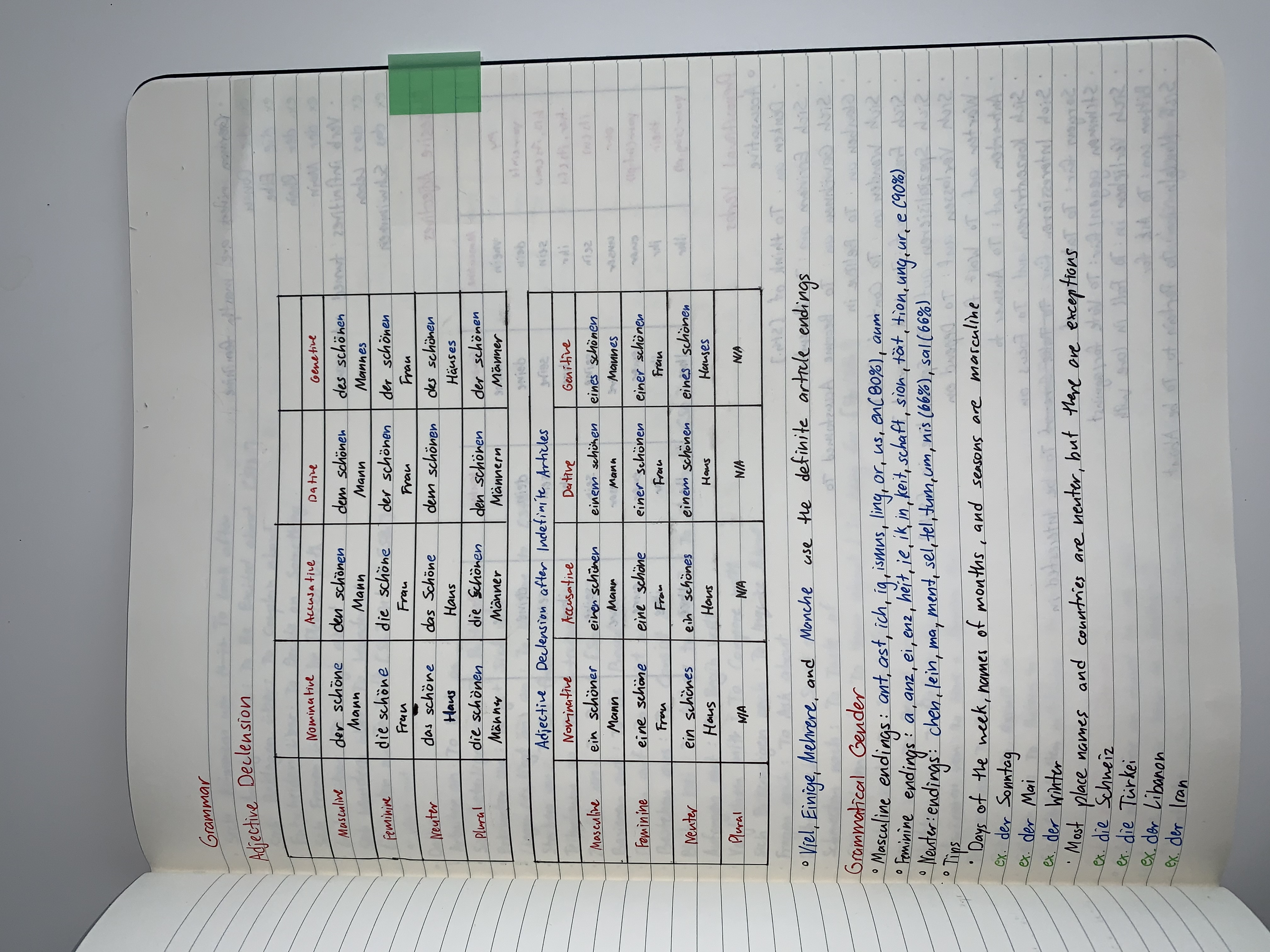
Ref. 6


Ref. 7
Ref. 8
Ref. 9


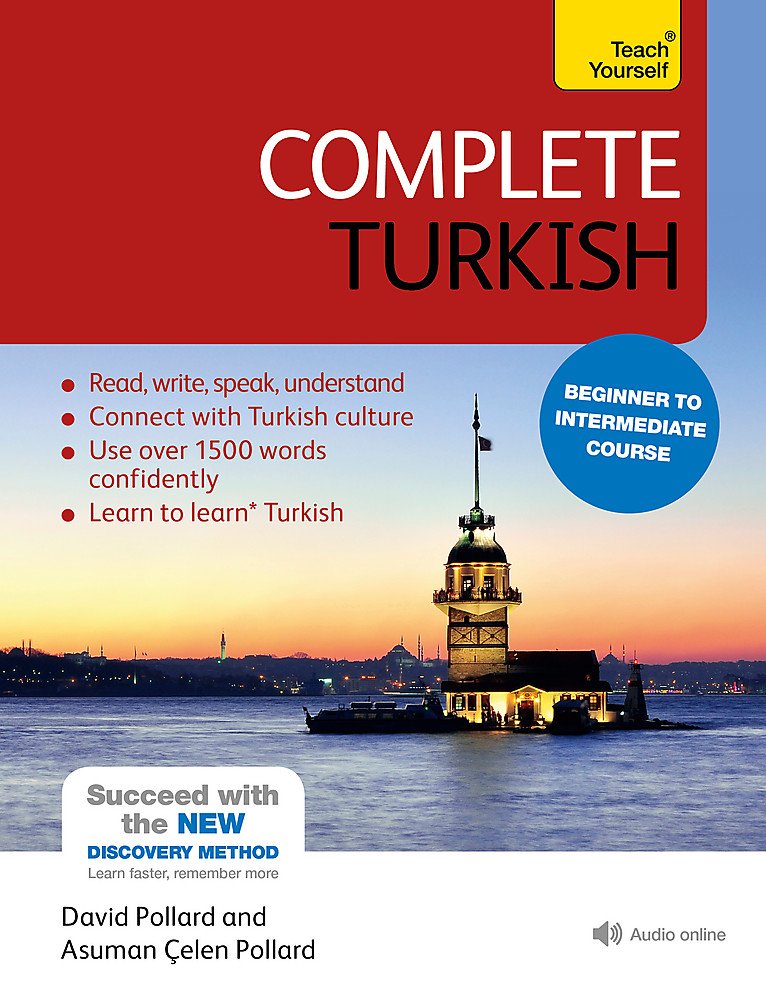

Ref. 10
Ref. 11
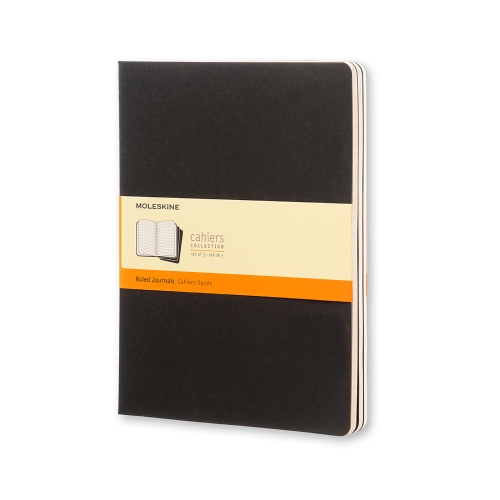
Moleskine CAHIER JOURNAL - BLACK (small notebook)
Ref. 12
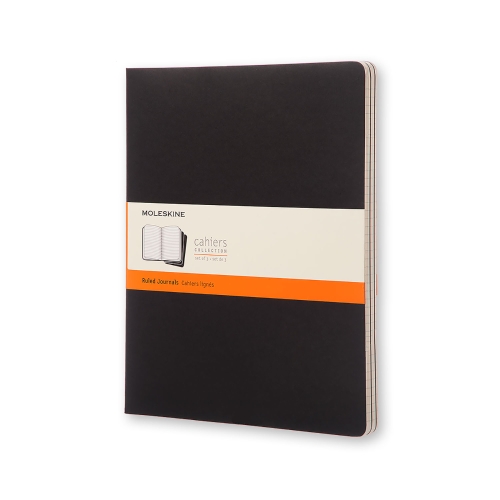
Moleskine CAHIER JOURNAL - BLACK XXL (large notebook)
